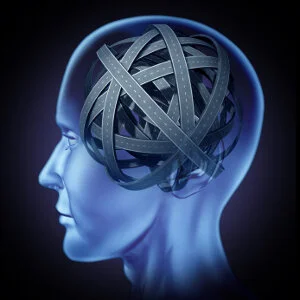Alzheimer’s Genetics: Would You Want to Know?
by Senior Care Corner:Alzheimer’s disease is a scary diagnosis, both for the patient and their loved ones. There is almost no one in America who is currently unaffected by this disease either with a loved one, friend or possibly themselves.What if you were told you have the “gene” for Alzheimer’s? Would you want to be tested or even know if you might be in the early stages? A recent article that we found extremely fascinating explored these specific questions and gave a glimpse into the world of a family in the grips of Alzheimer’s disease.A Family Afflicted by Alzheimer’sAt a family reunion there were gathered 14 siblings ranging in age from 29 to 52 years. Included in the family photo were cousins, aunts and uncles in addition to the siblings. One observer remembers that many of the siblings did not “seem right.” They appeared confused, stared into space and found difficulty keeping up with the conversations that day.This was behavior that was shared by the grandfather – the father of the siblings – who, at age 53, lost track of his driving and steered himself and his wife into the path of a train, killing his wife. He survived and in the next decade became even more confused and subsequently died, unable to care for himself.A doctor would later confirm that the observer’s father had Alzheimer’s disease. His mother, as so many do, wanted to keep the diagnosis a secret but one of the aunts told the family, who also wanted to keep the secret. As it turns out, 10 0f the 14 siblings developed Alzheimer’s disease, with symptoms appearing around age 50.This family would become part of a large study known as DIAN – Dominantly Inherited Alzheimer Network. Researchers are looking at family members and studying their brains before symptoms appear. Soon they will give a new drug to these individuals in hopes of slowing or even stopping the progression of the disease in those predestined to be diagnosed with it. They believe these individuals have a gene mutation leading to the development of Alzheimer’s disease.Researchers believe that a gene mutation on chromosome 21, as well as two others which are inherited from the parents, result 100% of the time in the development of Alzheimer’s disease since the brain can’t fight against the accumulation of plaque. In addition to the hallmark plaque formation of beta amyloid, shrinkage of the brain matter seen on autopsy correllates with specific declines in memory, attentiveness and eventually ability to care for oneself. By studying individuals in families with know gene mutations, they feel much can be discovered in treating and hopefully preventing the disease.What If This Were Your Family?One of the children, now faced with a possible diagnosis of his own, changed his life to accommodate any future mental decline and made plans for that eventuality. In the meantime, his extended family became involved in the DIAN project.It is interesting that of the family members taking part in the DIAN project, few want to know if they have inherited the gene mutation. They just don’t want to know. Only those who have the gene mutation are given medication so now placebos are being used so no one will know if they have the genetic marker or not.What would you do? Would you want to know?What plans or changes would you make in your life – or would you go on as before?None of us has a crystal ball to see what the future holds, but somehow I wonder if knowing would be easier so that appropriate plans could be set in motion for those loved ones affected.We hope you never have to find out and we find a cure – and prevention – for Alzheimer’s soon!

